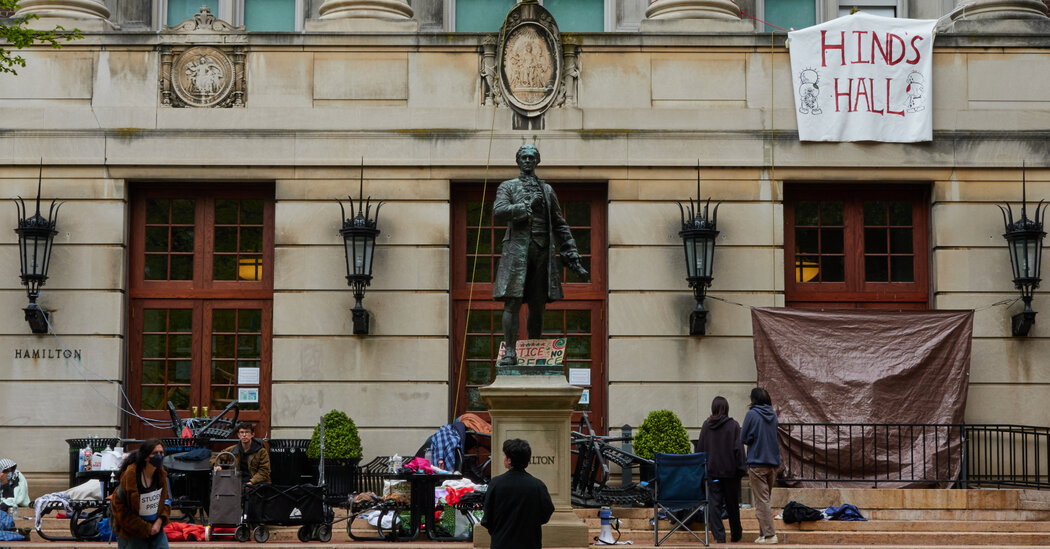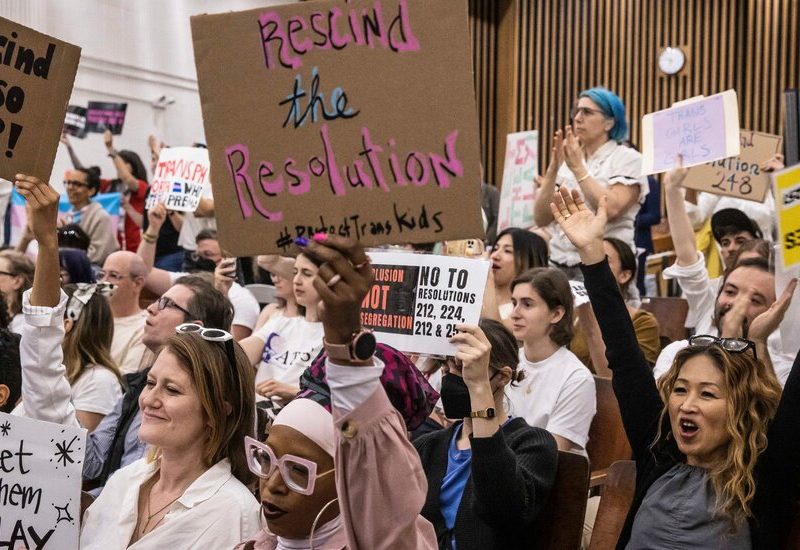Student protesters at Columbia University who took over a building on campus Tuesday morning could face a variety of felony or misdemeanor charges, but probably will not be found guilty of criminal charges, said Martin R. Stolar, a Manhattan lawyer and former president of the New York City chapter of the National Lawyers Guild with more than 50 years of experience defending protesters.
“We’re not talking about jail time here,” said Mr. Stolar, 81. He is not representing any of the demonstrators arrested in recent pro-Palestinian protests in New York, he said, but is advising a number of younger lawyers who are.
Protesters broke into Hamilton Hall early Tuesday, hours after university administrators said they had begun suspending students who refused to leave a tent encampment on campus. Videos show a person breaking glass panes in a door to gain access to the building. Other photos taken inside and posted on social media show protesters using chairs and desks to barricade the doors.
Columbia announced later Tuesday that the students occupying the building faced expulsion.
At a news conference on Tuesday evening, Edward Caban, the police commissioner, said student protesters occupying Hamilton Hall would be charged with burglary, criminal mischief and trespassing. Students who are outside, in the encampment on campus, will be charged with trespassing and disorderly conduct, he said.
“What we saw last night and into today is not acceptable,” the commissioner said.
Jeffrey Maddrey, the Police Department’s chief of department, said at an earlier news conference on Tuesday that officers would not go onto Columbia’s campus unless the university’s administrators requested it or the police had reason to suspect that someone on campus was hurt or in “imminent danger.” A spokeswoman for Alvin L. Bragg, the Manhattan district attorney, did not immediately return messages seeking comment.
The protesters could face a broader range of charges than those mentioned by police officials, Mr. Stolar said. They could range from disorderly conduct, a violation that can be resolved with a fine and does not involve criminal charges, to second-degree criminal mischief, a Class D felony involving more than $1,500 in property damage. Such a charge carries a maximum jail sentence of up to seven years, according to New York State penal law.
Protesters could also be charged with misdemeanor criminal mischief in the fourth degree, which involves intentionally or recklessly damaging property, Mr. Stolar said. Charges might also include trespassing, a Class B misdemeanor with a maximum sentence of 90 days in jail.
Protesters could face more serious consequences if evidence is found that they carried weapons or an explosive device into the building, Mr. Stolar said, or if they committed any violent assaults, Class B felonies that carry a penalty of between five and 25 years in jail.
Such outcomes are unlikely, Mr. Stolar said. Student protests at Columbia have been nonviolent, and most students have no prior criminal history. University administrators and the Manhattan district attorney’s office have decades of experience with such demonstrations, Mr. Stolar pointed out, including the Columbia protests of 1968, when students occupied the same building. Most were not criminally charged, Mr. Stolar said.
The current protesters inside Hamilton Hall will most likely receive an “adjournment in contemplation of dismissal,” or A.C.D., Mr. Stolar said, a type of deferred prosecution in which the case is adjourned for six months. If the prosecutor does not move to try the case within that period, the case is automatically dismissed and sealed.
Erin Nolan contributed reporting.



